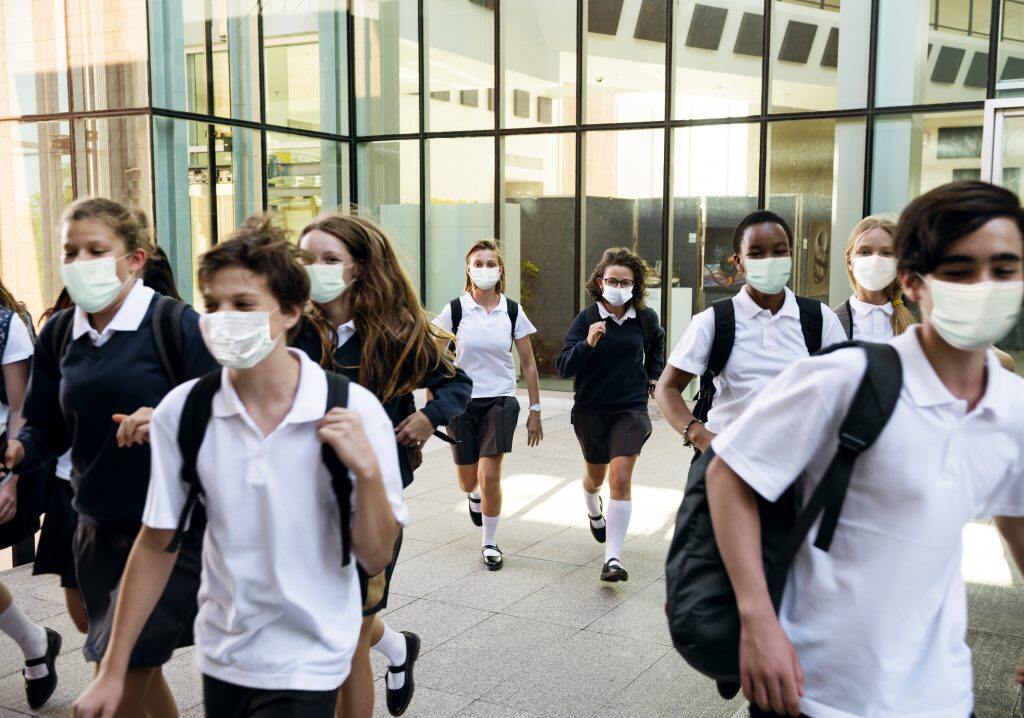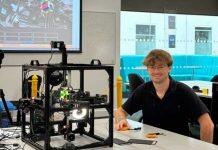

In the document, published on the first anniversary of Britain’s first lockdown, the British Academy has warned society will continue to feel the impacts of COVID-19 for a decade or more without an urgent public policy overhaul.
In its new multi-disciplinary evidence review, The COVID decade: Understanding the long-term societal impacts of COVID-19, the Academy forecasts that significant intervention will be needed to avoid an acceleration towards poorer health, social and economic outcomes, and a more extreme pattern of inequality.
The University’s Humanities Research Institute was commissioned by the Academy to undertake a ‘deep dive’ into the effects of COVID-19 on children and young people in society. This was overseen by Professor Jennifer Richards, Director of the Humanities Research Institute and James Law, Professor of Speech and Language Sciences in the School of Education, Communication and Language Sciences. Interviews with researchers and external partners were conducted by Dr Hazel Sheeky Bird and Dr Rachel White, both in the School of English Literature, Language and Linguistics.
In November 2020 when the research was undertaken, the longer-term effects of the pandemic were starting to be understood. The data collected by the Humanities Research Institute stands as a snapshot of the effects of Covid-19 several months into the pandemic and the second national lockdown, but before the rollout of the vaccination programme.
Social consequences
“We wanted to find out what was happening ‘on the ground’ to support the well-being of children and young people during the pandemic,” said Professor Richards. “In the space of three weeks, Hazel and Rachel amassed a wealth of data – some 90 pages of interviews – for us to digest.
“The gloomy picture of inequality that emerged did not surprise us. What did surprise us were the creative solutions being delivered by researchers and partners in the arts and cultural, charity, and the voluntary and community sectors. The lessons we learned, and the recommendations we made, make clear the essential role that the arts, humanities, and social sciences will play in re-shaping our post-pandemic society.”
“The medical issues associated with COVID-19 are clearly paramount at the moment but the social consequences of the pandemic, for children and families especially, are likely to be with us for many years to come,” said Professor Law. “We need to approach this from a number of different angles including policy and practice and, of course, from the families and children themselves.
“Universities have an important role to play in supporting these activities in a variety of ways. What was clear from the work that we carried out for this report was that the humanities and social sciences are key players in this agenda and are well positioned to work with our local communities in lots of different creative ways to help them build back better.”
Policy analysis
The COVID decade: Understanding the long-term societal impacts of COVID-19 highlights a number of trends during the pandemic. They include:
• Worsening social development, relationships and mental health – impacts which will vary according to age, gender, race and ethnicity, and levels of social deprivation;
• Low and unstable levels of trust in the national government, undermining the ability to mobilise public behaviour;
• Widening geographic inequalities on measures such as health and wellbeing, local economic risk and resilience, and poverty;
• Severe strains on the capacity to support local community infrastructure, which has risen in importance during the pandemic;
• Lost – and likely unrecoverable – access to education at all levels, exacerbating existing socio-economic inequality, limiting access to digital skills and technology, and impeding progress towards a prosperous, high-skilled economy.
The extensive evidence report is accompanied by a wide-ranging and thorough policy analysis, Shaping the COVID decade, which argues that these societal impacts have exposed several gaps in public policy making that the Government now has the opportunity to address. They include:
• Resolving tensions between the roles of local and central governance to improve local-level resilience and the response to local needs across the country;
• Strengthening and expanding the community-led social infrastructure that underpins services and support networks, particularly in deprived areas;
• Improving the flow of knowledge, data and information between all levels of government, different government departments, and between state and non-state decision-makers, making use of specific local and community knowledge;
• Eliminating the digital divide by treating digital infrastructure as a critical, life-changing public service;
• Empowering businesses and civic, educational and social institutions to act with a shared sense of social purpose.
Profound social damage
The British Academy convened and engaged with over 200 academics, practitioners and policy specialists from across the humanities and social sciences, and drew together insights from civil society, communities and policymakers.
Hetan Shah, Chief Executive of the British Academy, said: “A year from the start of the first lockdown, we all want this to be over. However, in truth, we are at the beginning of a COVID decade. Policymakers must look beyond the immediate health crisis to repair the profound social damage wrought by the pandemic.
“This means looking across education, employment, welfare, urban planning, community support and digital policies. It will require investing in civil society and our social infrastructure to strengthen our local communities, especially in our most deprived areas. We also need a more joined-up policy approach across government departments focusing on supporting children and young people whose lives have been so blighted by the pandemic.
“Science has given us the vaccine to respond to the health crisis, but we will need social science and the humanities to meet the social, cultural and economic crises we face in the COVID decade.”
Press release adapted with thanks to the British Academy







































